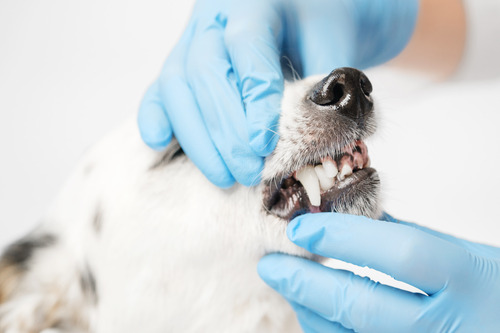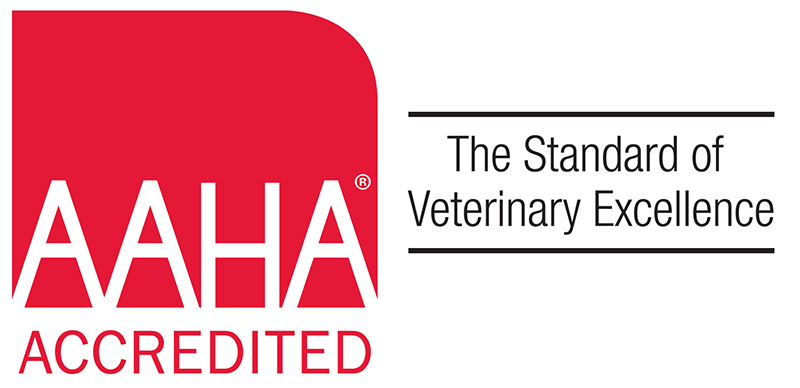Periodontal disease in dogs is an often overlooked health issue that can have significant impacts on our canine companions. It’s more than just a dental problem; it affects the overall well-being of dogs. At Triangle Animal Clinic in Conroe, TX, we’re committed to educating pet owners about this condition. If you’re concerned about your dog’s dental health, feel free to call us at (936) 756-3318 for guidance and care.
Causes of Periodontal Disease in Dogs
Periodontal disease in dogs arises primarily due to plaque buildup. Plaque, formed by bacteria in the mouth, can harden into tartar if not removed. Other contributing factors include genetics, diet, and oral hygiene practices. Smaller breeds and older dogs are more prone to developing this condition.
Diagnosis of Periodontal Disease
Diagnosing periodontal disease in dogs involves a thorough dental examination. Symptoms to watch for include:
- Bad breath
- Bleeding gums
- Loose teeth
- Changes in eating or chewing habits
If you notice any of these signs, it’s essential to consult a veterinarian promptly.
Treatment Options for Canine Periodontal Disease
When it comes to treating periodontal disease in dogs, the approach at Triangle Animal Clinic is thorough and tailored to each individual case. The treatment plan usually begins with a professional dental cleaning under anesthesia. This allows for a deep cleaning above and below the gum line, removing plaque and tartar buildup that contributes to periodontal disease.
In cases where the disease has progressed, more extensive treatments may be necessary. These can include:
- Scaling and Root Planing: Similar to deep cleaning, this procedure goes a step further to clean the root surfaces and remove any infected tissue.
- Antibiotics and Medications: Antibiotics may be prescribed to control bacterial infection. In some cases, medicated mouth rinses or gels are recommended to maintain oral hygiene and support healing.
- Tooth Extractions: Severely affected teeth that cannot be saved may need to be extracted. This is done to eliminate sources of infection and pain, and to improve the overall health of the mouth.
- Advanced Treatments: For more advanced cases, treatments like gum grafts or guided tissue regeneration may be considered. These procedures are less common and are aimed at restoring the health of the gums and supporting structures of the teeth.
- Pain Management: Managing your dog’s comfort during and after treatment is a priority. Pain medication may be prescribed as needed.
Post-treatment, the focus shifts to preventive care. Regular dental check-ups, consistent oral hygiene practices at home, and a dental-friendly diet can help manage periodontal disease and prevent its recurrence.
The Impact on Your Dog’s Overall Health
Periodontal disease in dogs is not just an oral health issue; it can have far-reaching effects on your dog’s overall health. Bacteria from the mouth can enter the bloodstream and attach to the heart’s valves, leading to conditions such as endocarditis or heart disease. The kidneys and liver filter the blood, and bacteria from periodontal disease can reach these organs, potentially causing inflammation and impaired function. Chronic infection in the mouth acts as a continuous source of bacteria. This can overburden the immune system and make it harder for your dog to fight off other infections. Dogs with periodontal disease also often experience discomfort and pain, which can affect their mood, behavior, and appetite.
Risks of Untreated Periodontal Disease
Ignoring periodontal disease can lead to severe complications:
- Tooth Loss and Bone Damage: As the disease progresses, it can lead to the destruction of the supporting structures of the teeth, resulting in tooth loss and potential bone loss in the jaw.
- Severe Oral Infections: Untreated periodontal disease can lead to abscesses or systemic infections, which may be challenging to treat and can have serious health implications.
- Nutritional Problems: Difficulty in eating due to oral pain can lead to nutritional deficiencies and weight loss.
- Overall Quality of Life: The pain and discomfort associated with periodontal disease can significantly reduce a dog’s quality of life, affecting their daily activities and interactions.
When to Seek Help
Watch for symptoms like persistent bad breath, swollen gums, or difficulty eating. These can be indicators of periodontal disease. It’s important to seek veterinary care at Triangle Animal Clinic as soon as these signs are noticed. Timely intervention can make a significant difference in your dog’s dental health.
Preventing Periodontal Disease in Dogs
Preventing periodontal disease in dogs is crucial for their overall health and well-being. At Triangle Animal Clinic, we advise pet owners to take proactive steps to ensure their dog’s oral health is maintained. Here are key strategies to prevent dental disease:
- Regular Brushing: Brushing your dog’s teeth daily is the most effective way to remove plaque and prevent tartar buildup. Use a toothbrush designed for dogs and pet-safe toothpaste.
- Dental Check-ups: Annual dental exams are essential. These check-ups allow veterinarians to spot early signs of periodontal disease and take preventive measures.
- Professional Cleanings: Regular professional dental cleanings by a veterinarian are crucial. These cleanings can remove plaque and tartar that brushing alone can’t.
- Diet and Chews: Feeding your dog a balanced diet and providing dental chews can help maintain good oral health. Some dog foods are specifically formulated to reduce plaque and tartar buildup.
- Toys for Dental Health: Chew toys designed to promote dental health can help clean teeth and stimulate gums.
- Regular Teeth & Mouth Inspections: Regularly check your dog’s mouth for signs of periodontal disease such as red gums, bad breath, or loose teeth.
- Water Additives and Dental Rinses: These products can help reduce plaque and bacteria in your dog’s mouth. They are not a substitute for brushing but can be a helpful addition to a dental care routine.
- Avoid Hard Treats: Hard treats can cause tooth fractures. Choose treats that are safe for your dog’s teeth.
- Educate Yourself: Stay informed about canine dental health and the best practices for maintaining it.
Remember, preventing periodontal disease is not just about dental health; it’s about keeping your dog healthy and happy. If you’re in Conroe, TX, and want to learn more about how to care for your dog’s teeth, or if you need to schedule a dental check-up, call Triangle Animal Clinic. Our team is here to help you every step of the way.
Prioritizing Your Dog’s Dental Health
Periodontal disease in dogs is more than just a dental issue; it’s a health concern that needs attention. Regular veterinary check-ups, good oral hygiene, and being aware of the symptoms can help keep your dog healthy and happy. If you’re in Conroe, TX, and have concerns about your dog’s dental health, don’t hesitate to call Triangle Animal Clinic at (936) 756-3318 for expert care and advice.







